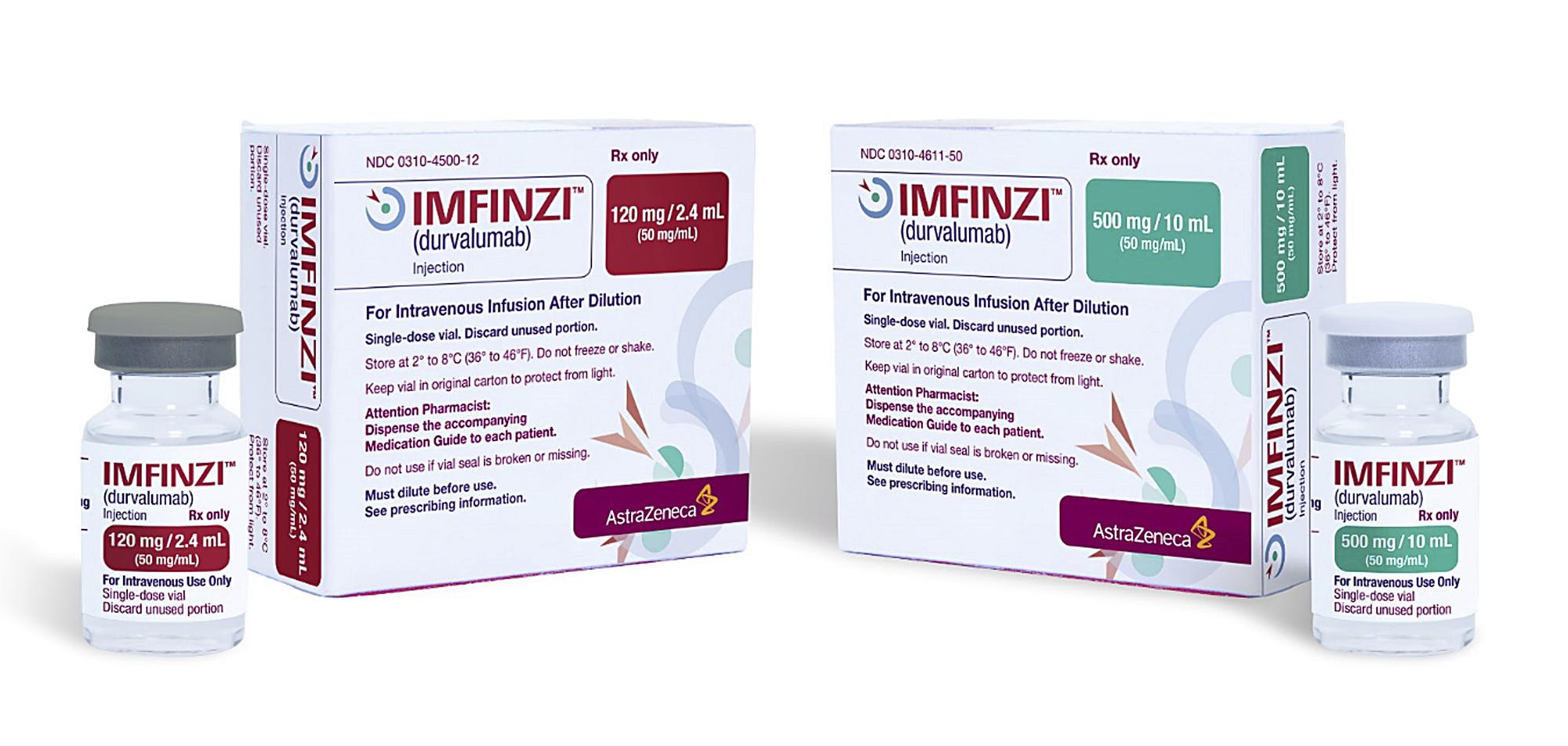AZ’s oncology hopes dented as Imfinzi flunks NSCLC trial

AstraZeneca’s cancer immunotherapy Imfinzi broke new ground when it was approved in 2018 for locally advanced non-small cell lung cancer (NSCLC) that can’t be treated with surgery and has not progressed after chemotherapy and radiation therapy (CRT), but the company’s plan to expand its use in this setting has been thwarted.
Imfinzi (durvalumab) was the first drug in the PD-1/PD-L1 checkpoint inhibitor class to show efficacy in this group of patients with less advanced NSCLC in the PACIFIC trial, carving out a niche for itself away from the dominance of MSD’s Keytruda (pembrolizumab) in metastatic disease.
A follow-up trial, PACIFIC-2, was designed to show that giving Imfinzi alongside CRT in the initial stage of treatment would improve outcomes but has failed to show efficacy on the primary endpoint of progression-free survival (PFS), according to an AZ statement this morning.
The aim of the study was to help patients who progress or discontinue treatment during CRT, for example, due to toxicity, and are therefore ineligible to receive consolidation therapy with Imfinzi.
It is estimated that around 20% to 30% of patients with unresectable stage III NSCLC fall into this category, and more patients are being identified at this pre-metastatic stage thanks to improved use of medical imaging to detect lung cancer.
PACIFIC-2 lead investigator Jeffrey Bradley of Penn Medicine said that CRT, followed by Imfinzi, remains the standard care for patients with this stage of NSCLC, adding that “as a community, we will take insights from these results to advance future research.”
Imfinzi’s use in this NSCLC setting is one of the key factors in driving its sales growth, up 56% to $3.1 billion in the first nine months of this year, so there’s little doubt that the trial miss is a blow to AZ’s hopes for the drug.
The company is, however, running several other studies in the hope of extending the labelling for the PD-L1 inhibitor in lung cancer, including resectable NSCLC in the ADJUVANT BR.31 trial, medically inoperable or unresected stage I-II NSCLC in PACIFIC-4 and unresectable, stage III NSCLC in PACIFIC-5, 8 and 9, as well as limited-stage small-cell lung cancer (SCLC) in the ADRIATIC trial.
Meanwhile, it recently chalked up an impressive win for Imfinzi in hepatocellular carcinoma (HCC) – the most common form of liver cancer – in the EMERALD-1 study.
“Our goal with the PACIFIC-2 trial was to address a remaining unmet need for patients in this setting by introducing immunotherapy even earlier and concurrently administering Imfinzi with chemoradiotherapy,” commented AZ’s head of oncology, Susan Galbraith.
“While today’s results did not reach statistical significance, we will learn from this trial, and we remain committed to improving patient outcomes by expanding the benefit of immunotherapy to lung cancer patients across treatment settings,” she added.
Shares in AZ were down around 0.5% in the wake of the announcement this morning.













